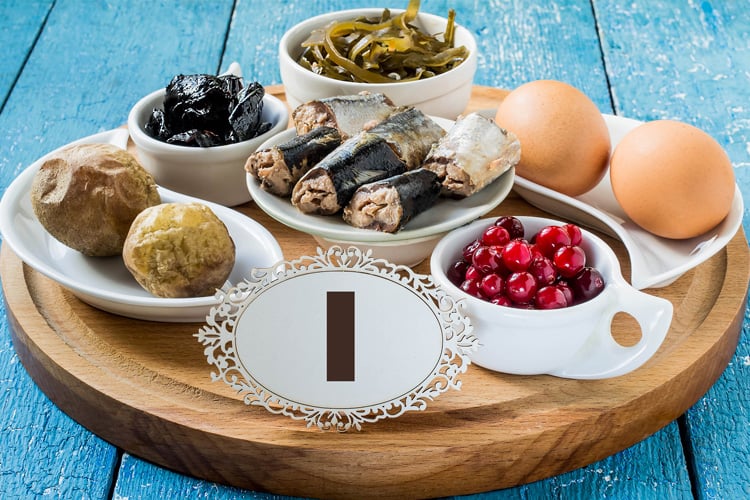
Do you agree that Iodine deficiency is one of the most common public health issues? Iodine mineral is an absolute necessity for the body to function well. Especially for thyroid. It is important for the immune system, and neurocognitive function as well.
Causes of Iodine Deficiency
- Salt used in cooking can lose up to 62.4% of its iodine content. Putting less salt on food can lead to iodine deficiency
- Using kosher or sea salt which has little or no iodine
- Consumption of more vegetables than meat. Plant originated foods have lower iodine content compared to animal origin iodine
- Regular exercising can make one lose a substantial amount of iodine while sweating
Signs and Symptoms of Iodine Deficiency
- Goiter, a condition of thyroid enlargement
- Depression and anxiety
- Mental Retardation
- Improper functioning of thyroid in unborn babies, which can ultimately lead to brain damage
- Autism
- Slow perception reasoning or brain function
- Sluggish metabolism, constipation, and weight gain
- Experience colds and flu’s easily
- Emotional imbalance, and lack of sexual interest
- Breast tenderness or soreness, and cysts
Benefits of Eating Iodine Rich Foods:
Listed below are few benefits of eating iodine rich foods:
- Boosts Metabolism
Eating iodine rich foods is essential for making both T3 and T4 vital for healthy metabolism. Iodine deficiency can lead to underactive thyroid known as hypothyroidism.
- Supports Thyroid Health
Include eggs, sea food, dairy products, and salt to avoid iodine deficiency which ultimately leads to thyroid and Goiter disorders. These foods often cure an enlarged thyroid gland.
- Helps Prevent Cancer
Studies show that iodine rich foods like seaweed reduces chances of breast tumor development. It thereby reduces the chances of breast cancer.
- Preserves Skin Health
Iodine deficiency can immediately reflect dry and irritated skin. Intake of iodine foods can regulate perspiration, and preserve skin health.
- Helps Control Sweating and Body Temperature
Iodine rich foods can alleviate symptoms of hypothyroidism occurring from hormone underproduction. These hormones can naturally regulate internal body temperature.
- Maintains Healthy Brain Function
Iodine plays an essential role in healthy brain development and improving cognitive abilities. A deficiency in iodine can lead to mental disorders
Here are the lists of Iodine Rich Food Sources:
Note that iodine levels in different types of food can vary depending on how it was grown or produced. Here are 21 of the best iodine food sources for the average adult.
1. Iodized Salt
One gram of iodized salt can offer about 77 mcg of iodine. Sprinkle this salt to your other iodine rich food sources for best results.
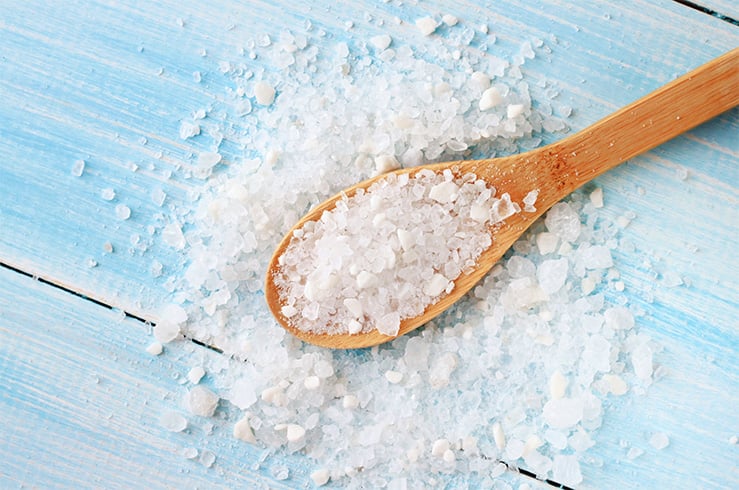
2. Sea Vegetables and Seafood
Sea vegetables such as Kelp, Arame, and Wakame are rich sources of iodine. It is said that Kemp contains the highest amount of iodine. Just one serving of these foods offer four times the daily requirement.
3. Boiled Eggs
Eggs are rich in protein and iodine. One egg alone contains about 12 mcg of iodine. One of the simplest ways to get iodine in your diet can be through egg yolks.
4. Fish
Fish food sources such as tuna and cod are rich in iodine. About three ounces of cod serving can offer about 99 mcg of iodine and six ounces of tuna can offer 34 mcg of iodine.
5. Shrimp
Shrimps are iodine enriched as it is infused with the mineral from seawater. A three ounce serving of shrimp can offer about 35 mcg of iodine.
6. Lobster
Including one serving of lobster every day can prevent iodine body deficiencies. Serve 100 grams of lobster to obtain about 100 mcg of their daily value.
7. Baked Turkey Breast
Baked turkey breast are packed with iodine. A three ounce serving of baked turkey breast can offer about 34 mcg of iodine.
10. Yogurt
It is essential to include yogurt into your diet as it is rich in iodine. Just one serving of yogurt can boost you with daily required nutrients. One cup of yogurt contains 90 mcg of iodine.
11. Lima Beans, Navy Beans and Green Beans
Beans such as Lima Beans, Navy Beans, and Green Beans are rich food sources of iodine. Just ½ cup of these beans are said to contain about 32/ mcg of iodine.
12. Organic Corn
Including organic corn can help to boost iodine levels in body. One half cup of canned corn can provide about 14 mcg of iodine.
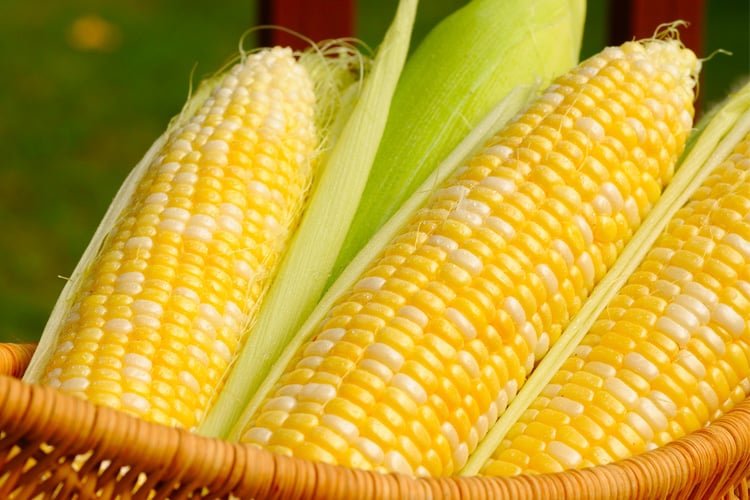
13. Dried Prunes
Consume about five dried prunes daily to obtain about 13 micrograms of iodine. Do not consume the prunes in excess because it is rich in calories.
14. Raw, Organic Cheese
Cheese contains a high level of iodine. One ounce of raw cheddar cheese contains about 10-15 mcg of iodine. Just four ounces of cranberries contain about 400/ mcg iodine.
15. Baked Potatoes
It is said that just one medium sized baked potato contains about 60 mcg of iodine. Include this rich source of iodine in your diet.
16. Green Peas
Green peas are rich sources of iodine. To get the best out of it, boil ½ cup frozen peas to obtain about 3% iodine.
17. Organic Strawberries
Organic strawberries add up to 10% of iodine content with just one serving. Having just one cup of strawberries can pack 13 mcg of iodine.
18. Bananas
Bananas have rich iodine content, unknown to most people. One medium sized banana can offer about 3 mcg of iodine which totals up to 2% of total value.

19. Cranberries
Cranberries are rich sources of iodine. Just four ounces of cranberries serving can offer approximately 400 mcg of iodine
20. Pineapple
Pineapple is a great source of iodine. It also acts an anticoagulant, helpful in lowering blood pressure.
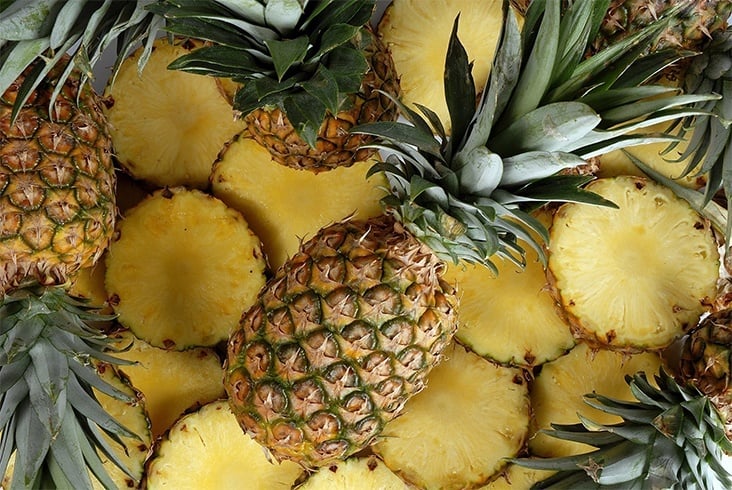
21. White Bread
When consumed in moderation, white bread can be a good addition to your diet. About two slices of white bread contains about 45 mcg of iodine.
Recommended Daily Intake Amount of Iodine
For overall growth and development, we need an intake of one tsp of iodine. As our body cannot store iodine, it is necessary to include little iodine, as possible daily. But it is also necessary to balance iodine intake as it can lead to weak pulse, nausea, stomach pain, vomiting, and coma. Excessive iodine consumption can also lead to more serious conditions such as thyroid cancer and hyperthyroidism. Listed below is the recommended daily intake amount of iodine.
- 200 mcg for 1-3 years
- 300 mcg for 4-8 years
- 600 mcg for 9-13 years
- 900 mcg for 14-18 years
- 1,100 mcg for 19 years
- 900 mcg for pregnant women 14-18 years
- 1,100 mcg for pregnant women 19 years and older
- 900 mcg lactating women 14-18 years
- 1,1000 mcg lactating women 19 years and older
Tips:
- Purchase as much organic food as possible.
- Wash all the fruits and vegetables thoroughly to clear the pesticides and other chemicals.
- Avoid eating and drinking from plastic containers.
- Avoid soda and aerated drinks. Drink, pure filtered water instead.
- Your personal care products should be as chemical free as possible.
[sc:mediad]
FAQs
1. What happens if I do not have enough iodine?
Low iodine intake can lead to lowered developmental levels of thyroid hormones. Over a period of time, it can cause your thyroid to swell in size and trap iodine. This swelling, also known as Goitre, may be visible in neck area. An iodine deficiency during pregnancy can also dither the growth of brain development in unborn child. It can ultimately slow down your children’s ability to learn faster during growing years.
2. Which foods should I include in diet for getting iodine supplement?
Iodine can be present in a range of foods such as fish and dairy products. Include a lot of seaweed like kelp once in a week, to provide your body with concentrated iodine sources. Seaweed is also suitable for pregnant women. Also, remember that oily fish are rich in iodine compared to white fish. Other than that, raw milk, cheese, and yogurt are rich iodine sources.
3. I have heard that organic milk does not contain iodine. Is it true?
No, it is not true. In fact, organic milk contains iodine. In fact, researchers have discovered that iodine amount found in organic milk is comparatively lower than iodine found in conventional milk. Drinking organic milk can provide the body with the needed iodine.
4. What is the best solution to get iodine when one dislikes eating vegetables and fish?
If you dislike eating fish, then you can try fish fingers. It can provide reasonable amount of iodine. For example, two fish fingers can contain about 60 mcg. Also, include milk and dairy products if you dislike eating fish. Vegetables do not contain high iodine amount, so it should be fine.
5. My father has been diagnosed with hypothyroidism, should he be given iodized salt supplements?
There is no added value to take extra iodine if he is already on levothyroxine as the body already has readymade hormones without needing raw materials.
6. It is said that thyroid cancer patients should follow a low iodine diet to prepare for radioactive iodine treatment. Why is it so and which foods should be avoided, and for how much duration?
Iodine enriched foods can prevent the intake of radioiodine isotope commonly used in treatment of thyroid cancers. Suppose if the treatment is pre-planned, then patients are given a diet chart of which foods to avoid including fish.
7. What is the overall function of iodine?
Iodine is an essential supplement useful for generating thyroid hormones through thyroid gland. The functions of iodine are added through functions of thyroid hormones. Thryoxine can help to promote and regulate a number of metabolic pathways. It can also regulate the protein synthesis. Furthermore, the brain and nervous system also require thyroid hormones.
8. Which foods are suitable for six months old or above?
Six months old or older babies can continue breastfeeding as it has natural content of iodine and nutrients. They can also be fed on formula milk which meets the Codex requirements. The milk intake should be 600 to 700 ml daily. Other than milk, babies should be fed on seawater fish and egg yolk. The recommended intake should be 1 egg yolk or 40 gm of seawater fish (2-3 tsp) daily.
In the initial stage, babies should be breastfed or formula fed. This should not be reduced even if they are introduced to solid food. Start with 1-2 tsp of solid food daily. If the baby is eating well, then slowly increase the food amount. The food texture should run from smooth to runny, and to thicker food.
Also, remember to introduce foods that are less liable to cause allergy. Foods such as rice cereal, fruit puree, and vegetables are less likely to cause allergy. Wash and cook all the foods clean and methodically. Introduce one new food at a time. Observe allergic reactions if the baby develops swollen eyes, face, mouth and lips, vomiting, eczema, and vomiting.
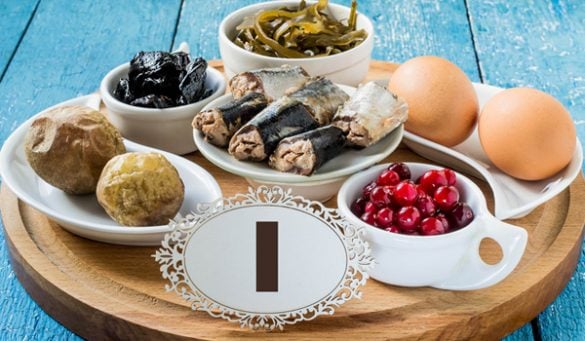
2 comments
Can Iodine Deficiency lead to any disease?
Iodine deficiency can result in goiters, which can delay the development and lead to complicated health problems.